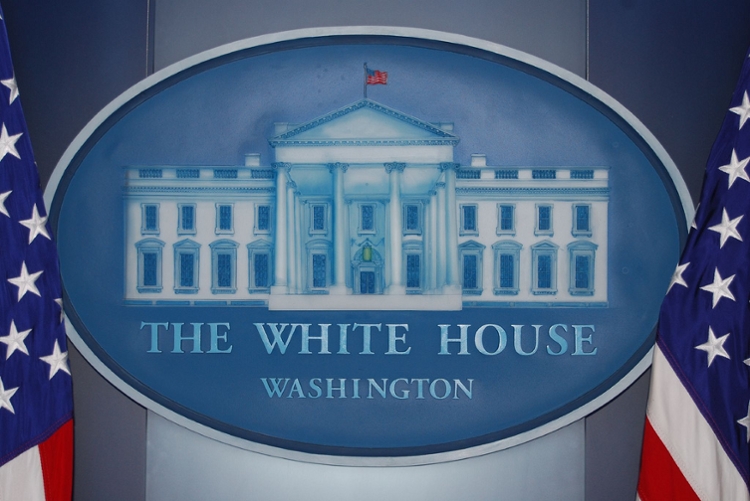No White House Access, No Problem?
IPR’s Rachel Davis Mersey highlights opportunity for media
Get all our news

IPR mass communication scholar says the media will need to change how they cover the White House.
Since taking over the White House briefing room, the Trump administration has floated several ideas that would make radical changes to how the press covers the White House and potentially restrict press access. This means “the media will need to think about how to cover the White House in a whole new way,” said IPR mass communication scholar Rachel Davis Mersey at Northwestern University’s Science Café event on January 18.
Mersey, who spoke at the informal forum on scientific issues, explained how the media’s role is changing with the new administration. She began by focusing on how the mainstream media failed to predict the election of President Donald J. Trump.
“The media are just as culpable to living in an echo chamber as all of us are,” Mersey said. “Living in their own bubble, the media practitioners themselves don’t see the full picture of the world.”
Mersey underscored this point by sharing what a recent Medill intern in Washington, D.C., told her: “We were never reporting on a story that someone else in the mainstream media wasn’t doing.”
According to Mersey, a media company has to cover at least the minimum of what other outlets are doing to stay competitive.
“You get 55 different stories about what happened when Al Gore talked about the environment, but you missed the story about what happened at the high school down the street because no one was covering it,” she explained.
Because of this, the media have lost touch with “middle America,” Mersey said. Journalists tend to go to organized events and chase reports of structured presentations, which typically are held by more liberal organizations than conservative ones. Grassroots organizations like churches and community centers typically do not hold formal press conferences, making them more of a challenge for reporters to cover.
The tendency for people to consume partisan media only adds to the problem. Mersey points out that about 30 percent of people who consider themselves Republican or conservative rely on Fox News as their primary source of information. But this is hardly unique to Republicans, she contends. On either end of the political spectrum, one sees very little crossover to media outlets with diverse viewpoints.
“We’re dealing with a marketplace that has people very sheltered from one another, rarely having conversations across those boundaries,” Mersey said. “Media practitioners have no incentive to start those conversations—they tend to be inflammatory, they tend to turn people off.”
But Mersey sees a bright spot—an opportunity for the media to improve their coverage during the Trump administration.
She noted Trump’s press team has considered increasing the press pool and reducing their direct access to the White House. That is not the problem that it would seem to be, Mersey argues, because it would force journalists to change how they report.
The press corps’ status quo, Mersey explained, is that reporters know someone will take their phone call or question. But if Trump reduces access, that might force reporters to dig more deeply and seek out a more diverse set of sources instead of just reporting what a White House official said. They would be forced to understand “how to separate fact from fiction, propaganda from valuable information,” Mersey explained. This could also lead to more “agenda-setting” by the media.
“We know we have a lot of inexperienced people moving into Washington,” Mersey said, highlighting how individuals new to the political process might need more information on the issues and possible solutions. “The media have the potential to put ideas forward as opposed to just quoting and criticizing official sources.”
Rachel Davis Mersey is associate professor of journalism and an IPR fellow.
Photo credit: John Sonderman, Flickr.
Published: February 7, 2017.